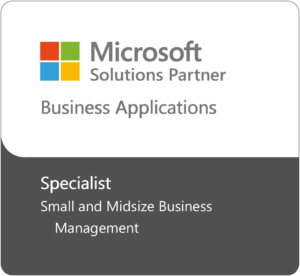Why Isn’t My ERP System Doing What It’s Supposed to Do?
This post is courtesy of Maria Snyder, a Senior Management Consultant who focuses on helping companies improve their processes. Clients typically identify 5 to 7 processes they want to improve and then, with Maria’s help, really improve those processes.
So you have a shiny new ERP system (or maybe even an older, slightly dusty one), but it still hasn’t produced the myriad of benefits your vendor promised. Now what?
The right ERP system for you, when properly configured and implemented, should allow you to streamline processes, reduce costs, improve customer relationships and enhance data utilization. If all or some of that isn’t happening, then it’s time to step back and ask the question, “Why not?”
There are several possible answers to that question. The four I find most often are as follows:
1. We did not receive proper training and/or the new system isn’t intuitive.
That may be true of day-to-day activities as well as new features provided by your ERP system.
2. The new ERP system doesn’t do what we want it to do.
This could be a reflection of poor training. It could also be that there’s an additional ERP module you didn’t purchase that your users need. Then again, ERP systems, like snowflakes, are each unique. It could simply mean that your system doesn’t have the complete solution your business needs. (Let’s hope not!)
3. People don’t trust the new system.
Until your employees become confident that the system will inherently do what it’s supposed to do, some will continue to do double duty and utilize other tools (e.g., spreadsheets and documents) to validate expectations. Hopefully in time they’ll take the plunge and eliminate this extra labor effort.
4. People don’t want to change.
The importance of change management is often overlooked on large efforts, including new ERP implementations. Challenging the status quo directly challenges people’s sense of security and comfort. Did you take the necessary steps to alleviate those concerns?
Regardless of which answers fit your situation (it’s typically more than one), unless those issues are resolved, you will never see the full benefit of your investment nor the Return On Investment (ROI) you were hoping to get.
That’s where we can help.
Boyer & Associates has the expertise to get you back on track to earning that ROI.
We start by discussing the challenges your team is facing, from the expectations of top management to the data entry people responsible for keeping the wheels moving on your business.
From there, we categorize the challenges and, using identified key performance metrics, show you which areas will bring the most positive impact.
If you decide to further engage our services, we’ll do a more extensive evaluation of those processes, identify the specific issues and further refine what exactly needs to be addressed.
Our team will then apply best practices and, working with your team, define your new “normal.” This may include process re-engineering, additional software, some focused training, etc.
Regardless of the method(s), we have the expertise to address your situation and we can help you with the change management steps necessary to bring your solution to fruition.
Your ERP system should allow you to be scalable, adaptable and provide the springboard for you to keep up with and surpass your competition. You’ve already made a sizeable purchase for your ERP system. Contact us if you’re ready to get the most from that investment.








